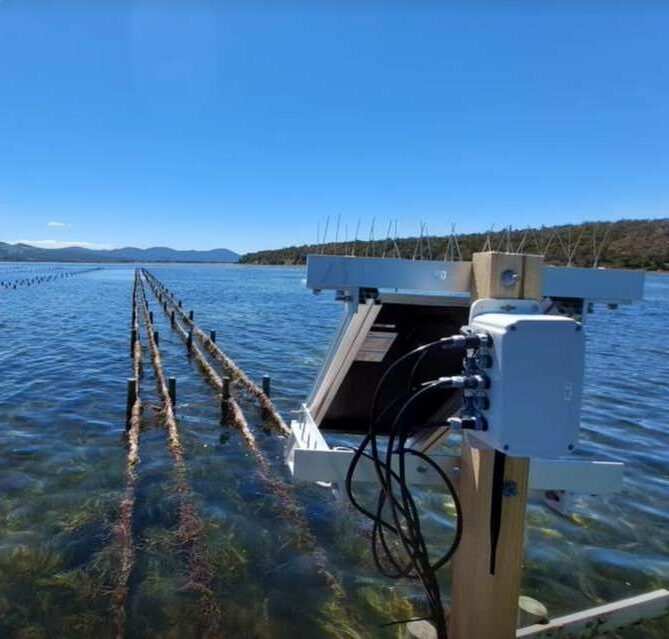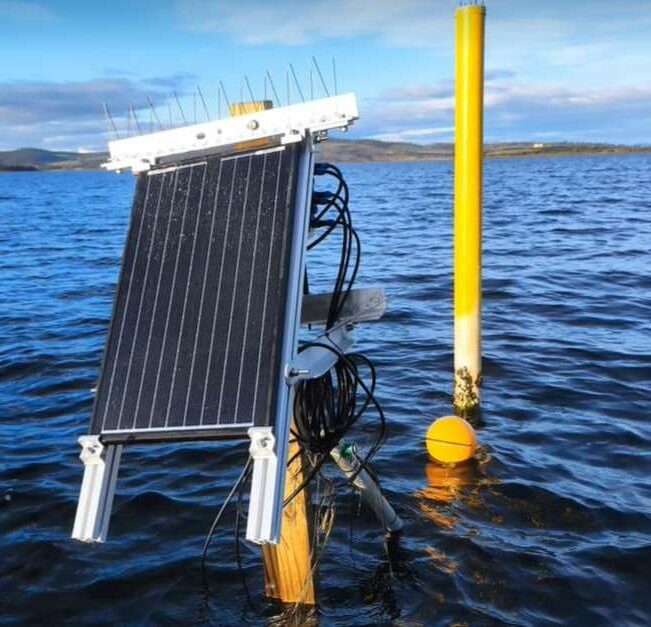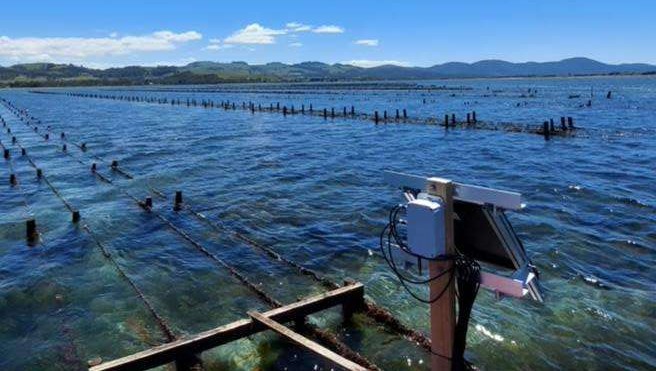It is well known that filter feeding shellfish such as oysters or mussels are very sensitive to their aquatic environment and are only safe for consumption where they have been grown in pollution-free waters. Oysters are so sensitive in fact that even environmental events such as increased rainfall flushing the land or higher water temperatures can affect them.
In 2021, the Tasmanian Smart Seafood Partnership (TSSP) teamed up with Oysters Tasmania to support the installation of an Oyster Sensor Network across Tasmania. This network of sensors will measure in-situ, real-time water quality data such as water temperature, salinity and depth, giving the producers in the aquaculture industry access to information that can assist them in making decisions for their business. And because oysters are ocean sensors, what we learn from them could also assist other parts of the seafood industry and shellfish farming research.
The project is currently being rolled out, with the ‘ShellPOINT’ data portal in construction and sensors being deployed at shellfish farms across Tasmania. More sensors can be added to the network at any time in the future, and different types of measurements (such as oxygen or pH) can be collected, adding to the data that can be collected from the environment. Shellfish farmers have been working with the sensor network team to make sure that the way data is collected and displayed is suitable for their businesses.


Jennifer Hemer, NRM South’s Water and Marine program manager sees this initiative as not just benefitting Tasmania’s $28 million oyster industry but as bringing other environmental and research benefits. ‘Getting access to information on environmental data trends supports operators in making decisions during events which require management decisions for food safety and farming operations – such as a rainfall event higher up in a catchment. In addition to this, monitoring trends at the coastal end of catchments may also help in identifying land-based actions that will improve river and coastal health for all users.’
A key element of this partnership is providing access to real-time data for education providers and research institutes to help understand the science behind marine farming and support better decision making into the future. As part of this initiative, the TSSP will develop educational resources which can be used by schools and for training purposes to build the capacity of the industry to interpret data collected from the Network at local scale.
The TSSP is hosted by NRM South and works in partnership with the Tasmanian Seafood Industry Council. It is funded by the Australian Government.
